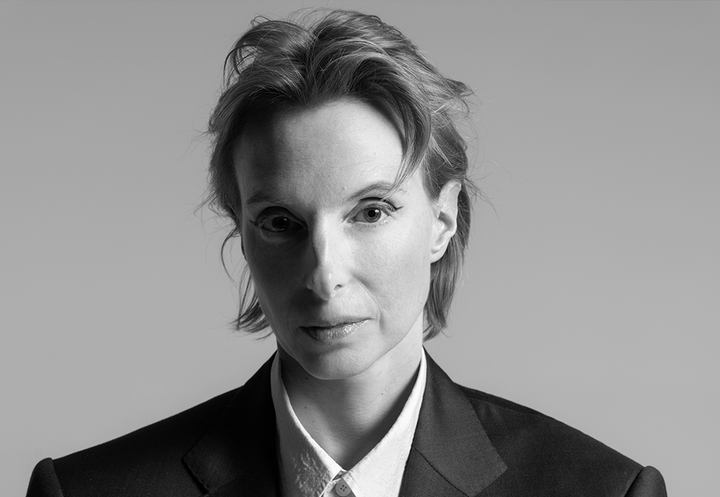
Join Performa's mailing list to stay up to date on the latest news and upcoming events.


What does it mean to see your own body move in ways you never performed? In film and performance, the body double has long symbolized risk, illusion, and perfection. In Body^n, her commission for the Performa 2025 Biennial, Ayoung Kim extends this legacy of the doppelgänger into the digital realm, exploring the invisible labor of bodies as they are captured, replicated, and made unfamiliar through technologies such as motion capture and virtual reality.
What fascinates Kim is the assembled body—a body multiplied, mediated, and estranged from its origin. She situates Body^n in the fictional space where the physical body meets its virtual counterpart. Kim describes this condition as an “altered presence,” a term she coined to express the slippage between embodiment and representation. In this digital realm, the human body vacillates, refracted across interfaces, screens, and stand-ins.
Early instances of this dynamic can be traced to Hollywood’s midcentury musicals, which relied on dancers who stood in for stars prior to filming. Dance historian Anthea Kraut, in Hollywood Dance-ins and the Reproduction of Bodies (2025), shows how "the body," as mediated through film and culture, is built on a chain of "reproductions, substitutions, and displacements." Modern technologies—from phones and sensors to wearables—extend this lineage, revealing how bodies in motion remain caught in asymmetrical systems of visibility and value. Kim reframes this economy of substitution within the digital sphere, exposing how physical risk, affective labor, and historical displacement are inscribed into the very interfaces that double, divide, and reassemble the body.
For the movement vocabulary and scenography, Kim draws on the aesthetics of video games, martial arts, and "Girls’ Love"—a comic genre centered on female-to-female romantic relationships—to probe the recursive loop of doubling and substitution in contemporary image-making. While "Girls’ Love" often depicts intimacy and emotional ties between women, Kim engages the genre not to reproduce its narratives, but to borrow its sensibility as a lens for imagining alternative relations and worlds. In this sense, "Girls’ Love" functions less as a fixed genre reference than a cultural resource, resonating with her interest in repetition, multiplicity, and speculative storytelling.
Actualizing this question of embodiment, Kim's Performa Commission places two performers—working in tandem with a choreographer—at the center of a stage apparatus that generates live motion-capture data. Their movements animate not only human avatars on a screen but also non-human digital props such as bicycles, ladders, and other speculative forms. These data streams are projected into game engine-built worlds that Kim and her team have been developing for years: a dense city center, a desert expanse, the interior of a fulfillment center. As the performers navigate both the physical venue and the digital—their bodies duplicated and displaced, refracted through layers of code—the line between virtuality and reality collapses into something far less unstable: a choreography of conjecture, estrangement, and uncanny recognition.
Kim challenges the assumption that her work is purely virtual by foregrounding the invisible labor behind digital creation. Motion capture undergirding these digital portals is not just a technical process of algorithmic code—it is also a physical practice that depends on strenuous rehearsal, interpersonal sensitivity, and the willingness to be overwritten by others. If performance is often thought of as a mask, Kim reframes it as a mirrored screen—one that unsettles familiar debates on the politics of representation by exposing their complicated entanglements in the digital realm. The result, in Body^n, is a performance that playfully cracks open the virtual: revealing the affective, ethical, and material labor that scaffolds the illusion.
Co-produced by Onassis ONX and Canyon. Curated by Defne Ayas, Senior Curator-at-Large, Performa, and Director, Van Abbemuseum in Eindhoven, with Josefina Barcia, Hartwig Art Foundation Curatorial Fellow. Produced by Esa Nickle and Alex Darby.
Ayoung Kim’s Performa 2025 Commission is presented in partnership with the Samsung Foundation of Culture. Supported by Arts Council Korea, SBS Foundation, and Performa Commissioning Council members Yana Peel and Bilge Ogut-Cumbusyan & Haro Cumbusyan.
Special thanks to Ilran Kim (김일란), Soyong Shin (신소용), Eriko Jimbo (에리코 짐보), and Babou Sanneh (바보우 산네).






